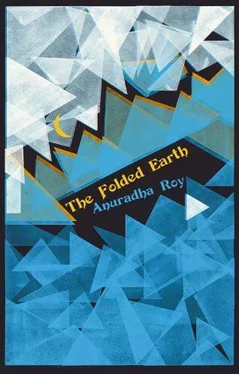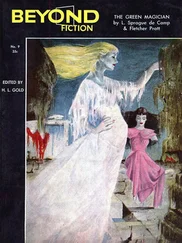After his morning shot, the Nawab returned to snooze for five more minutes with his head under a velvet pillow, and then he got out of bed to go to his horses. He had five favourites, whom he had named after Mughal kings and queens: Noor, Jahangir, Babar, Humayun, and Mumtaz. When Surajgarh fell to India at Partition and the Nawab realised he had picked the wrong side in the years before, he lingered for some months, then went into exile in Paris, parted from his palace and possessions and lands. He could not take his horses with him and they became an all-consuming worry over his last few days in India. He did not trust anyone else to look after them well enough. The day before his departure, he went at dawn to their stables, rode each of them for a few minutes, patted them, brushed them, watered them, whispered to them, and then shot them with his hunting rifle, one after the other.
The man sitting with Diwan Sahib did not look like one of his usual visitors; he seemed neither a local nor a scholar. He was wiry and long-limbed, too restless to sit still for long. He had a hollow-cheeked, cadaverously handsome face, and close-cropped steel-grey hair. I had to keep myself from seeming curious about his oddly deformed left ear, and a missing finger which I noticed whenever he wrapped his hands around his mug of tea, to warm them. Every time I stole a glance at him, I found his intent, grey-brown eyes on me, and unlike other people who look away when they are caught staring, he did not. He let his eyes linger, then float away to something else, and return again. If I interrupted Diwan Sahib’s story with comments on guns and shooting, from my recently acquired knowledge of Corbett, the man listened with great seriousness. He said very little himself, but when Diwan Sahib silenced my interjections in the acid tones he reserved for ignorant experts, I felt something like a current of sympathy pass between us, leaving Diwan Sahib out.
Now the man spoke. “I can understand the Nawab perfectly, I would have done the same myself.”
“Shot the horses?” I said.
“I’d rather kill something I loved? Than think of it belonging to someone else?” His statements ended in a question mark. A whisper of California rippled through the accents of his English. He did not smile and signpost a joke as he spoke. Instead he looked away with a slight frown, as if a troubling memory had poked its foot through a door in his head. He got up from his chair with such abruptness that it fell, and said, “It’s been too long since I came back here. Is my room still O.K.?”
Diwan Sahib introduced us at last. “This is Veer,” he said. “I know we are related — not sure how, but I know we are — maybe a nephew via some roundabout route? Veer, this is the love of my life, Maya, and I would certainly shoot both her and myself if she so much as threatened to leave my house for someone else’s.”
* * *
Diwan Sahib’s house was a higgledy-piggledy mansion built on many levels. It had doorways that turned out to be cupboards and cupboards that led into other rooms; it had attics, trapdoors, a basement. It had staircases that disappeared into darkness and so many rooms that I had not been inside all of them; nobody admitted it, but I think even Diwan Sahib thought the further reaches of the house were the domain of ghosts and spirits better left alone.
He used for the most part only two central rooms on the ground floor, and these he kept warm with a small fire, and a basic bar heater. The roofs leaked and many of the chimneys were blocked. He was too old to be bothered to repair anything, he said. A neighbourhood handyman was called in to patch up whatever was absolutely necessary and the rest was left to the elements and the monkeys that danced on the roof each afternoon. In the monsoon, buckets, tubs, and even gilded soup bowls from a fine porcelain dinner set, were planted all over the house to catch dripping rainwater. In winter Himmat Singh, who was only a little younger than Diwan Sahib, tottered about blocking broken window panes with pieces of cardboard, as a result of which the inner rooms were as dark as night in the daytime.
I had heard that before my time here, Diwan Sahib used to drive around in a temperamental blue Morris Minor that passers-by were accustomed to pushing to revive the engine when it lost interest. One afternoon, when it stalled thrice, he got out of it, gave it a parting kick, and left it to tip, handbrake-free, over Ranikhet’s steep western ridge. You could still see its rusted ruin trapped in the rocks below. Foxes lived in the shell. Mr Qureshi, the man who owned the town’s garage, and had repaired it for all of its life, could not stop mourning its brutal end. “That is no way to say goodbye to a car that has served you faithfully, to the best of its ability,” he said, and Diwan Sahib scowled, “Its best was appalling.” Mr Qureshi muttered, “Diwan Sahib is not himself after a few … Allah was wise to forbid alcohol.” Yet I often saw them together in the garden on folding aluminium chairs, Diwan Sahib squeezing lemon into gin, and Mr Qureshi holding a steel glass with both hands, sipping cautiously, as if it contained hot tea. He had a kind, bald face as round as a pumpkin, and as on a pumpkin all its lines radiated towards its centre, which was his small, cherry-like nose. The cherry grew redder as he sipped, but he persisted in deceiving himself that nobody could tell what he was drinking.
Diwan Sahib’s drinking sessions were his durbar. The table next to him had a bottle of gin on it before lunch, and rum if it was evening. Next to the gin on an old walnut-wood tray stood a bottle of bitters, a saucerful of lime quarters, a glass jug of water covered with a beaded white napkin and a silver cigarette case. Diwan Sahib no longer smoked, but the cigarette case had been his constant companion for decades and he liked having it nearby. The case was shaped as a Rolls Royce Silver Ghost, with every detail of the car intricately worked into the metal. The only moveable part, other than the wheels, was the car’s bonnet. Instead of carburettors and pistons, what was revealed when the bonnet was lifted was a compartment for cigarettes. Mr Qureshi coveted the case like a child, but Diwan Sahib would not part with it. His only concession was to allow Mr Qureshi to use it whenever he came. Mr Qureshi would place five of his own cigarettes within it as soon as he arrived. He would click the bonnet open when he wanted to smoke one, and quite often even when he did not. Diwan Sahib disliked the strong, filterless cigarettes Mr Qureshi smoked and would wave the smoke away saying, “I’m not going to let you use that case after today. Never.”
Diwan Sahib looked royal: his worn, brown dressing gown was his robe, and the woollen cap Charu had knitted for him his crown, while his immense height, his great age, and the whiteness of his hair and beard made everyone around him deferential. In the morning, if he was in a good temper, he allowed entry to visitors, and in summer they were frequent. Apart from Mr Qureshi and the elderly General who lived on the next estate, scholars of Indian history and wildlife made the long journey by train and road up from the plains to meet him and ask him questions about the princely state of Surajgarh. Where the Nawab had wanted Surajgarh to become a part of Pakistan at Partition, Diwan Sahib had opposed it, even getting into clandestine negotiations with political high-ups in Delhi to make sure Surajgarh fell to India’s share. Eventually he was jailed by the Nawab for treason. He described this as “enjoying the hospitality of the Nawab”.
The scholars asked him questions about his Surajgarh years, but in fact the lure for their trips was not Diwan Sahib’s reminiscences. Early in 1948, the Mountbattens, Edwina and her husband, went to Surajgarh for a state visit on which Nehru accompanied them. It was rumoured that Edwina and Nehru had written each other notes during the week they spent there in rooms at opposite ends of the palace, or stranded at separate dining tables. The notes were thought to have been stolen by a member of the palace staff, and ended up in the Diwan’s possession. Historians hungered for them. Dealers came for them too: their passion was not in the cause of biography; it was because of what the letters would fetch if sold. I was not sure the letters existed, but if they did, Diwan Sahib appeared to have no plans for them. He was contented enough in his dressing gown all day, drinking his rum and gin.
Читать дальше












